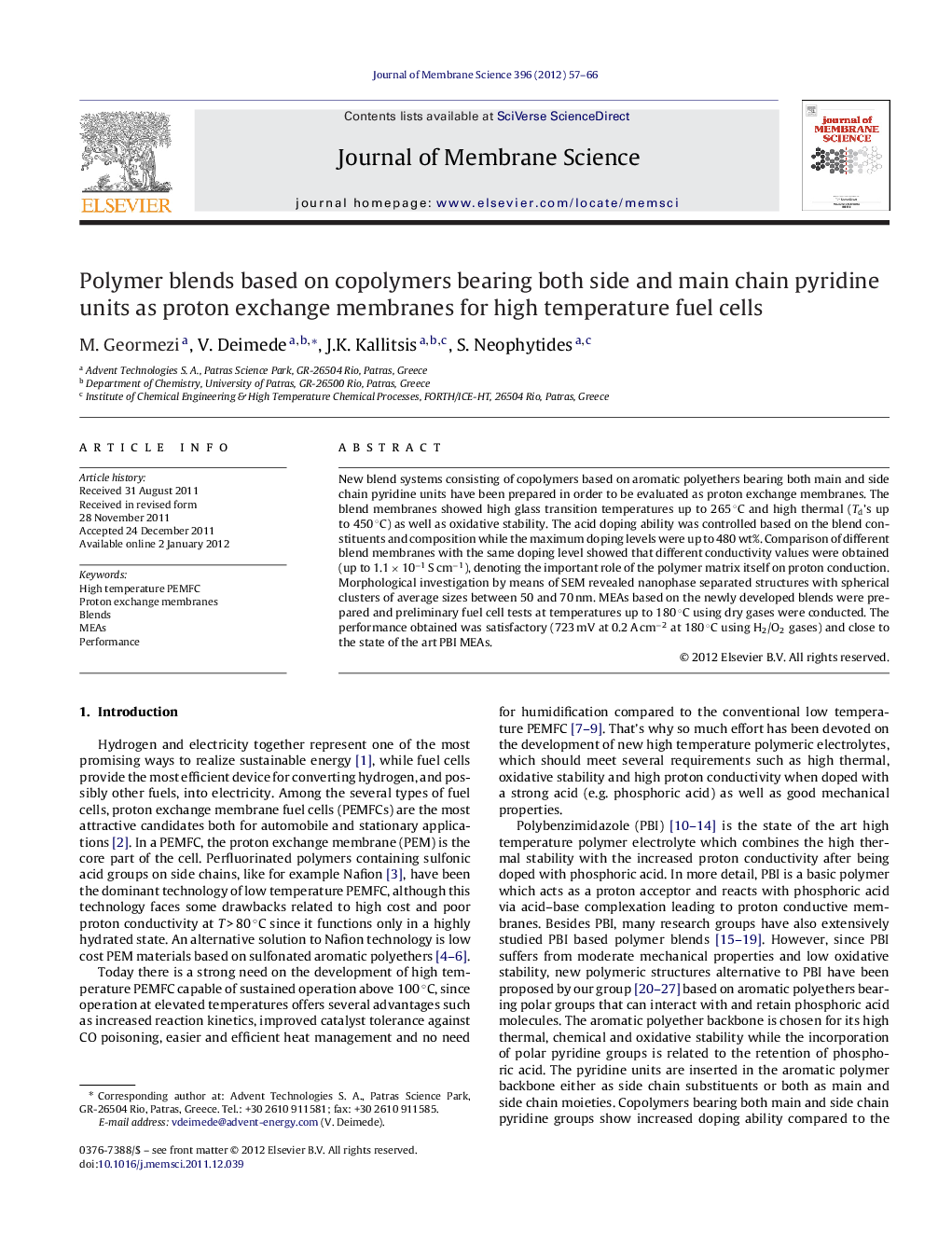| Article ID | Journal | Published Year | Pages | File Type |
|---|---|---|---|---|
| 635164 | Journal of Membrane Science | 2012 | 10 Pages |
New blend systems consisting of copolymers based on aromatic polyethers bearing both main and side chain pyridine units have been prepared in order to be evaluated as proton exchange membranes. The blend membranes showed high glass transition temperatures up to 265 °C and high thermal (Td's up to 450 °C) as well as oxidative stability. The acid doping ability was controlled based on the blend constituents and composition while the maximum doping levels were up to 480 wt%. Comparison of different blend membranes with the same doping level showed that different conductivity values were obtained (up to 1.1 × 10−1 S cm−1), denoting the important role of the polymer matrix itself on proton conduction. Morphological investigation by means of SEM revealed nanophase separated structures with spherical clusters of average sizes between 50 and 70 nm. MEAs based on the newly developed blends were prepared and preliminary fuel cell tests at temperatures up to 180 °C using dry gases were conducted. The performance obtained was satisfactory (723 mV at 0.2 A cm−2 at 180 °C using H2/O2 gases) and close to the state of the art PBI MEAs.
► Blends of polyethers bearing main and side chain pyridine units as polymer electrolytes. ► The acid doping ability was controlled based on blend components and composition. ► The conductivity was influenced by the doping level and the polymer matrix itself. ► Single cell testing of the prepared MEAs show a very promising performance. ► The performance compares well with the state of the art PBI MEAs.
